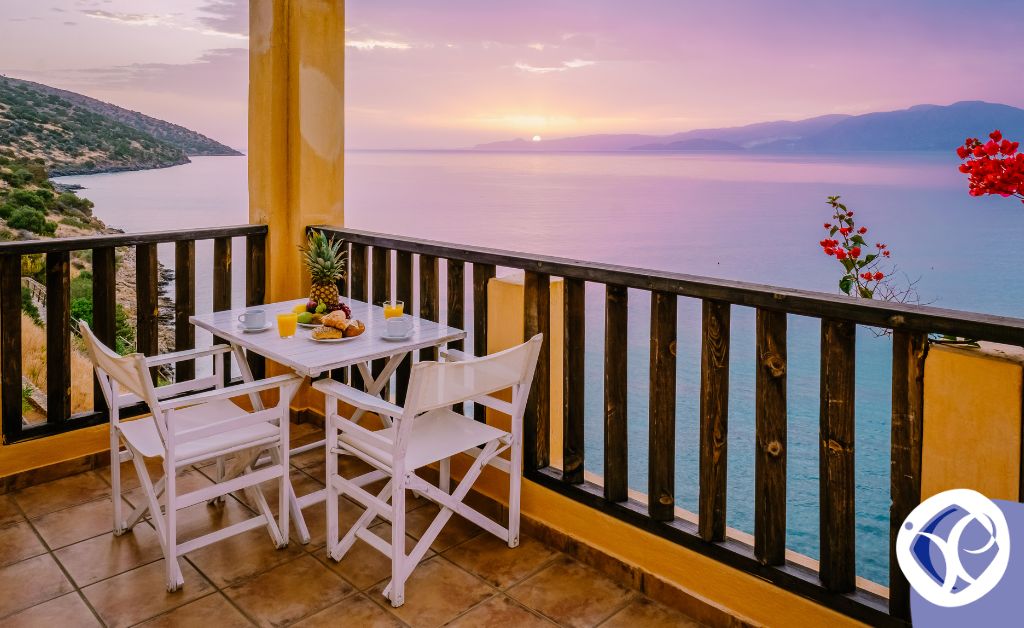If you own a Furnished Holiday Let (FHL), you’ll be able to highly benefit from claiming capital allowances.

(4-minute read)
We will cover:
- The tax benefits of claiming capital allowances for FHL owners
- The rules surrounding capital allowance claims
Furnished Holiday Let Rules
But what qualifies as an FHL?
To start with, it’s seen as a separate category from residential or commercial properties.
More specifically, for the purposes of tax, an FHL business is a trading activity.
To qualify as an FHL, a property must be:
- Rented out for at least 105 days per year
- Available for rent for at least 210 days per year
- Furnished to a standard that allows everyday occupancy
- Used as a let by tourists and holidaymakers (i.e., not rented out to family and friends)
- Located in the United Kingdom or another country within the European Economic Area (EEA)
- A short-term rental that is not rented out for more than 31 days to one individual or family
It’s important to take these factors into consideration for the purposes of claiming capital allowances as residential properties aren’t eligible.
Claiming Capital Allowances on FHL
You can claim capital allowances on certain items such as furniture and white goods (fridge and freezer) amongst others.
The general rule is that the expenditure must be wholly and exclusively for the purposes of the holiday letting business. This is an important factor in terms of eligibility to claim capital allowances.
You should therefore keep full and detailed records of all expenditure (obtaining receipts wherever possible) so that you do not miss out on claiming valuable tax relief.
Cash basis
If you want to claim capital allowances and your profits are under 150k a year, a cash basis is a simpler way of keeping track of your profits and losses.
Under the cash basis, property business income and expenses are accounted for when money is received or paid, not on the date of the invoice.
So instead of preparing a balance sheet and profit and loss account, the business records only need to show money when it comes in or goes out.
Pensions
Keep in mind that the income generated from an FHL property is classed as ‘relevant earnings’ which allows you to make tax-advantaged pension contributions.
Capital allowances will deduct the cost of capital expenditure from your taxable income, allowing you to keep more money for your pension.
Furnished Holiday Let Capital Allowances
Capital Allowances can provide you with significant tax savings, depending on your tax bracket and expenditure.
The value of capital allowances will vary significantly depending on the build costs and specification but can exceed 25% of the purchase and refurbishment costs on a new holiday let project.
For example, if you purchase a property for £550k and spend £250k in development expenditures, the available capital allowances could amount to £200k, which for an additional rate taxpayer would mean tax savings of up to £90k.
Therefore, you should speak to an adviser to find out how much you could benefit from claiming capital allowances.
So, what are some of the specific tax benefits you get through capital allowance claims?
Annual investment allowance (AIA)
This can be particularly lucrative for higher and additional rate taxpayers, who can set the relief against their rental profits at their highest marginal rate of tax – 40 per cent or 45 per cent.
While capital allowances are generally spread over several years, keep in mind that the annual investment allowance (AIA), which provides 100 per cent tax relief in the year of expenditure, will generally be available, meaning you can take full relief upfront and significantly reduce your tax liabilities.
Super deduction
The super deduction allows you to deduct 130% of the qualifying expenditure from your profits and could save you thousands.
Companies can also benefit from a 50% first year allowance for expenditure incurred in the same period which would otherwise qualify for writing down allowances at the special rate of 6%.
Private use adjustment furnished holiday lets
Keep in mind the point we’ve made earlier in the article, that FHLs must meet a series of criteria to qualify and claim capital allowances.
The period in which you let a holiday property is verified by HMRC and they only allow the expenditure and allowances when it is let out to tourists and visitors.
If the property is let out to friends and family, i.e., for ‘private use’, HMRC will limit your ability to claim.
Consider the appropriate adjustment fully and ensure that it has been documented accordingly before completing your self-assessment tax return.
In conclusion, you should highly consider the help of a qualified tax adviser to ensure you get the most out of capital allowances.
Contact us today at 01772 788200 to find out more about how we can help, or WhatsApp us out-of-hours at 07787 010190.
Sending an e-mail is simple too, just fill out this short form and we’ll get back to you!
Kind regards Ilyas
